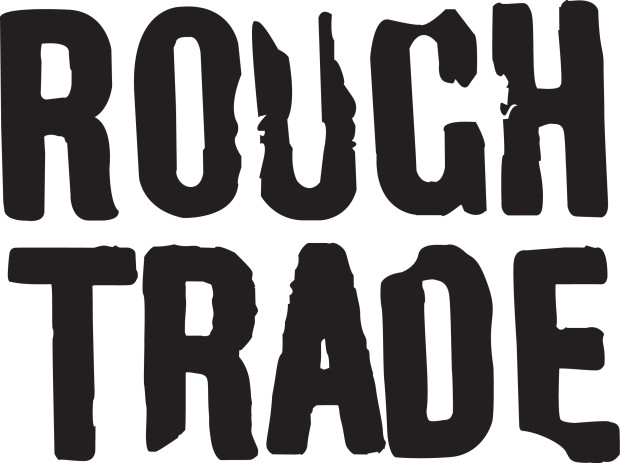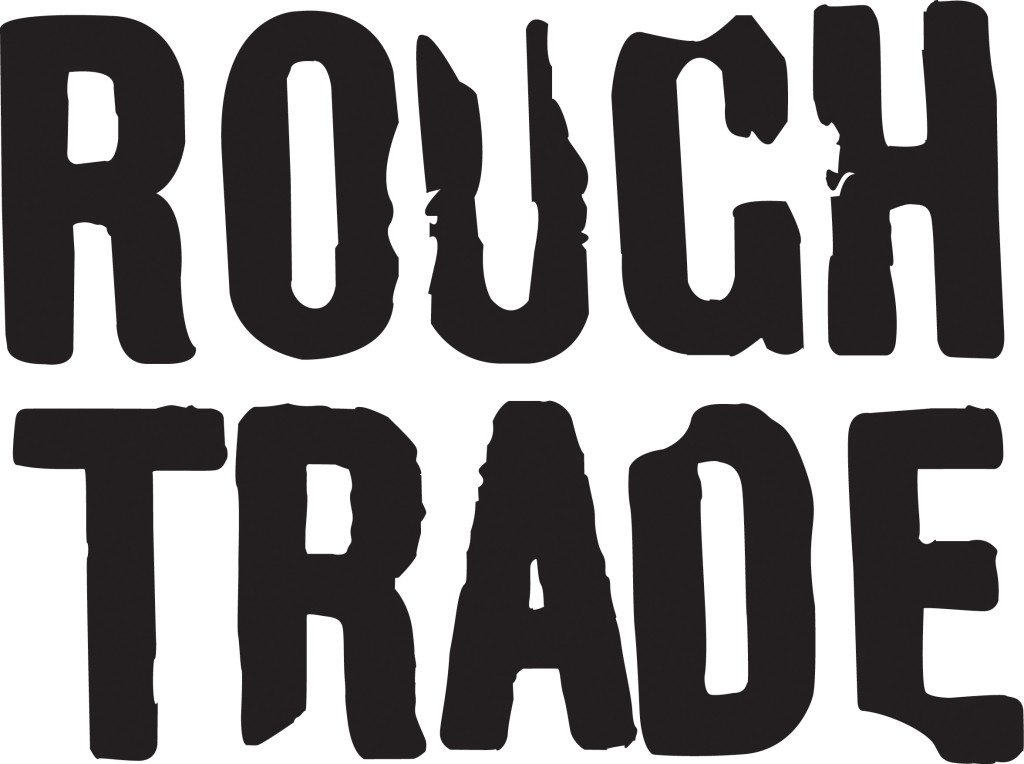Having founded the first Rough Trade shop in London two years earlier, Geoff Travis first launched the independent label of the same name in 1978, at a time when an abundance of new underground acts inspired by the DIY ethic of punk were just dying to be heard. The shop and its distribution network were already providing a valuable retail outlet for these artists to get their records on sale, so starting a label seemed like the logical next step. Despite being at the heart of the post-punk and alternative scenes throughout the 1980s, by the dawn of the 90s overtrading and financial issues forced the label to close, but when Travis reactivated it with Jeanette Lee at the end of the 90s, it was almost immediately back at the forefront of the indie scene, closer to the mainstream than ever before with huge acts like The Strokes leading a revival of a sound Rough Trade had helped pioneer first time round. While Travis and Lee admit to turning down profitable artists if they don’t personally like their music, the financial issues appear to have been kept at bay this time as they’ve maintained a strong roster well into the current decade.
It’s difficult to sum up the label’s legacy in just ten tracks, and there are plenty of absences here to bemoan, but the below playlist provides a rough overview of their incredible catalogue to date.
Stiff Little Fingers – Suspect Device (Inflammable Material, 1979)
After a string of strong singles by the likes of The Monochrome Set and Subway Sect, the first Rough Trade album was the debut by Belfast’s own Stiff Little Fingers. And impressively for a label’s first LP, it charted at number 14 and became the first independently released album to sell over 100,000 copies. The album even contained a track called ‘Rough Trade’, while ‘Alternative Ulster’ has become something of an anthem of positivity and change in this country, though album opener ‘Suspect Device’ remains their finest slice of incendiary, politically charged punk.
The Raincoats – Off Duty Trip (The Raincoats, 1979)
When art students Ana da Silva and Gina Birch formed The Raincoats, they had no interest in aping either macho rock clichés, in-your-face confrontation or affected glamour, choosing instead to simply convey an image of ordinariness that matched their lack of instrumental skill, although the amateur nature of the band’s folk-tinged melodic clatter is precisely the key to their appeal – “ordinary people making extraordinary music” as Kim Gordon put it. But, while less confrontational than The Slits, they still projected a refreshingly feminist attitude in a largely male dominated scene, with the powerful ‘Off Duty Trip’ bitingly recounting a rape case where the defendant received a lenient sentence to avoid damaging his military career.
Young Marble Giants – N.I.T.A. (Colossal Youth, 1980)
Signed on the strength of just two tracks from a compilation of Cardiff based bands, Young Marble Giants’ stark minimalism, based around incredibly basic drum machine, bass, skeletal guitar and occasional organ, combined with Alison Statton’s sugary sweet vocals, made them one of the most idiosyncratic bands of the era. One of Kurt Cobain’s favourite bands (along with The Raincoats), Colossal Youth was to be their only full length album, but the sound of ‘N.I.T.A.’ could later be heard throughout the music of Broadcast amongst others.
Swell Maps – Cake Shop (Jane From Occupied Europe, 1980)
One of Rough Trade’s strengths was being able to realise the potential of a band like Swell Maps. The fiercely DIY group based around brothers Nikki Sudden and Epic Soundtracks had been making music since they were teenagers, but only once punk arrived did they think to record any of it. Debut A Trip To Marineville ranged from clattering art-punk that seemed to reflect the burning house on the cover to droning instrumentals, while follow up Jane From Occupied Europe went even further in its Can-influenced experimentation, with ‘Cake Shop’ managing to combine the different aspects of their sound into a relatively conventional song. Despite an all too brief career, their influence can be heard all over the likes of Pavement, Guided by Voices and Sonic Youth.
The Fall – I Feel Voxish (Perverted By Language, 1983)
Mark E. Smith dispenses of record labels even more readily than band members, and The Fall’s relationship with Rough Trade was no exception. Their initial stint with the label from 1980 was just long enough to see them release live album Totale’s Turns, third studio LP Grotesque and the following year’s Slates EP before relations soured and they absconded for the much smaller Kamera label. After Kamera went bust they would soon see out the rest of the 80s on Beggars Banquet, but not before a short lived return to Rough Trade for the release of Perverted By Language. One of the finest albums in their sizeable canon, it saw them reign in some of their noisier elements and revel in their krautrock influences more than ever, as evidenced by the propulsive bassline and wiry guitar of ‘I Feel Voxish’.
The Smiths – Stop Me If You Think You’ve Heard This One Before (Strangeways, Here We Come, 1987)
Now one of the defining bands of 1980s indie music, The Smiths were any record label’s dream, in that they inspired a devoted cult following that would snap up whatever new album, single or compilation came along, though Morrissey would end up railing against the music industry culture of fan-duping reissues on ‘Paint A Vulgar Picture’ from Strangeways, Here We Come. That album, the band’s last and arguably best, saw Johnny Marr begin to transition away from his trademark jangling guitar style and explore new sounds, but by the time of its release they’d already split up. ‘Stop Me If You Think You’ve Heard This One Before’ though, fittingly enough, still jangled like the Smiths of old and featured some of Morrissey’s finest lyrics (“The pain was enough to make a shy bald Buddhist reflect and plan a mass murder”).
Galaxie 500 – Leave the Planet (On Fire, 1989)
Starting off on smaller labels with a drum kit borrowed from Conan O’Brien, dream pop trio Galaxie 500 signed with Rough Trade in time to release their second and most influential LP On Fire in 1989 to immediate critical acclaim in the UK, though it was met with a much more muted reception in their native US, where critics complained about Dean Wareham’s ‘vocal limitations’. But really it’s his distinctively strained voice, along with Naomi Yang’s melodic bass and Mark Kramer’s spacey production, that make tracks like ‘Leave The Planet’ so captivating.
British Sea Power – Carrion (The Decline Of British Sea Power, 2003)
Far from the supposed cool of successful early 2000s signings The Strokes and The Libertines were a band that far more accurately summed up the Rough Trade ethos. British Sea Power – a group of highly literate history and nature loving eccentrics dressed in pseudo-military gear with foliage covered stages and chaotic gigs often interrupted by a giant bear – were never going to achieve the same levels of commercial success but their charming oddness secured them a strong cult following. Having since branched out into making documentary soundtracks and working with brass bands, debut album ‘The Decline Of British Sea Power’ remains their most enduring, combining their trademark breathy sound with some furious Pixies-style aggression, with the beautiful ‘Carrion’ successfully marrying these two sides of the band’s sound into one defining single.
Arcade Fire – Neighborhood #2 (Laika) (Funeral, 2005)
Another big coup for the revived Rough Trade was securing the European release of Arcade Fire’s full length debut Funeral. There was already a growing hype around the band since the album’s North American release on Merge in late 2004, but they soon became a major concern upon its release in the UK. While they’ve only gotten bigger and bigger since and Merge has handled the worldwide release of subsequent albums, Funeral remains their most celebrated LP for singles like ‘Wake Up’ and ‘Rebellion (Lies)’, while they’ve never since repeated the ramshackle charm of ‘Neighborhood #2 (Laika)’.
Girl Band – Pears For Lunch (Holding Hands With Jamie, 2015)
Still true to their original spirit, the label has just put out one of the finest and most forward thinking albums of this year by Dublin’s Girl Band, having encouraged them to record it in the same DIY manner that made their previous singles so appealing. While many Irish acts struggle to make an impact beyond these shores, Girl Band’s impossible blend of noise-rock, post-punk, krautrock and techno, as heard on ‘Pears For Lunch’ – accompanied by Dara Kiely’s cathartic lyrics inspired by mental health issues – has already found a wide audience, and Rough Trade have been widening that impact ever further. Though several labels were interested in the band, they say they chose Rough Trade partly because the label had released some of their favourite records in the past. Well, we can see what they mean.







